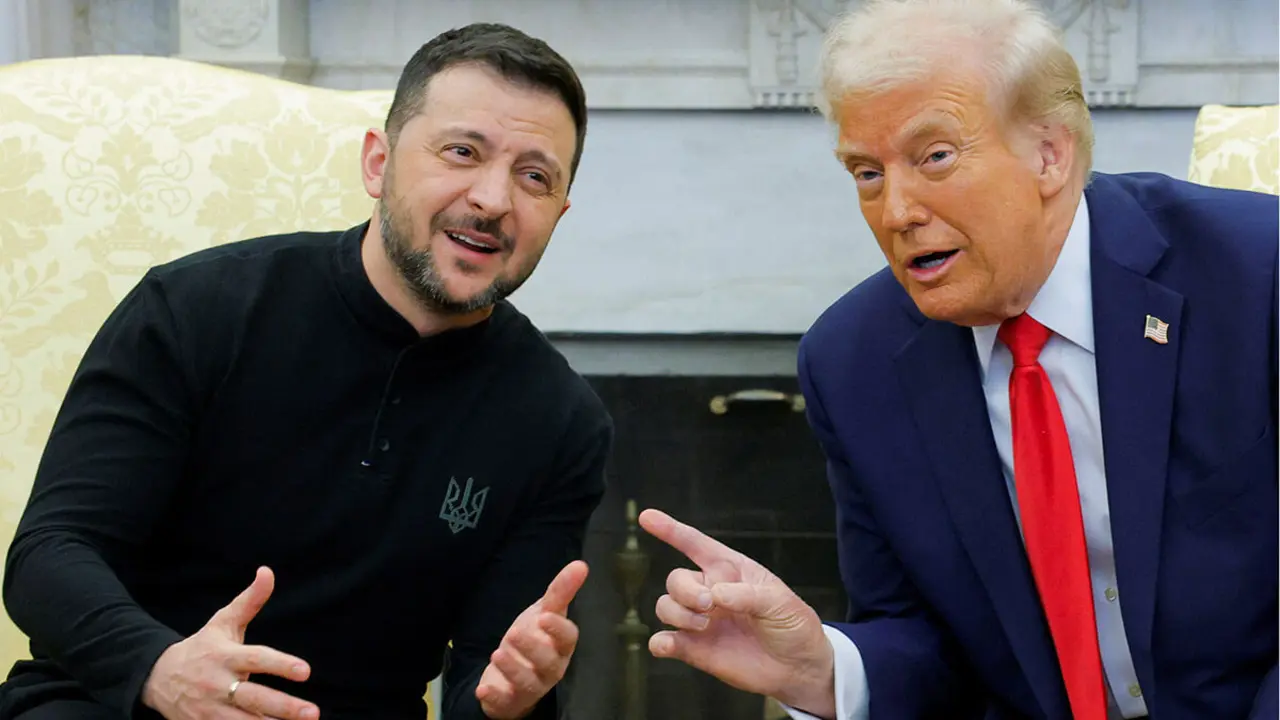Netanyahu assures Jordanian king of status quo on Temple Mount

Netanyahu is obliged to be more accommodating if he wants to ease tensions with his neighbours. The Israeli Prime Minister has devoted his first weeks in office almost exclusively to putting out the fires, both internal and external, that his new government partners, specifically the ultra-nationalists of Religious Zionism, have been setting. The unauthorised visit to the Temple Mount by National Security Minister Itamar Ben Gvir, the radical coalition's number two, provoked a strong reaction from Arab countries because of the implications it could have for the status quo in Jerusalem's Old City compound. Bibi must now face the music.
The experienced Prime Minister flew to Jordan on Tuesday with that maxim in mind, to reassure his neighbours that with him at the helm of government relations would remain stable despite the fact that he has granted his extremist partners new powers over state security. To this end, Netanyahu travelled accompanied by the head of the internal intelligence service, the Shin Bet, the military secretary and the Minister of Strategic Affairs, Ron Dermer, as well as other high-ranking officials of the Hebrew administration. It was his first foreign trip since taking office in December.

He was met in Amman by King Abdullah II, escorted by his Foreign Minister Ayman Safadi, Chief of General Staff Jaafar Haasan and intelligence chief Ahmed Hosni. It was the first time in five years that Netanyahu and the Hashemite monarch had met. The Israeli Prime Minister had secretly visited the Jordanian capital in 2018, during the Trump administration, to negotiate a peace deal between Israel and the Palestinians with the king. Since then, there had been no contact between two leaders who, in reality, never really got to understand each other despite being US allies in the Middle East.
"I've been to many meetings between Netanyahu and the king, and this was one of the best," Ron Dermer said at the end of the meeting. The meeting lasted about two and a half hours, longer than expected, and was conducted in a positive atmosphere, according to the Israeli daily Haaretz. And yet the context was not the most appropriate. A climate of tension had settled into their bilateral relations after Bibi's return to power. So much so that the Jordanian Foreign Ministry has summoned the Israeli ambassador to Amman on two occasions in recent weeks, the first time to protest against Ben Gvir's visit and the second to denounce the fact that a policeman prevented the Jordanian ambassador from entering the Jerusalem mosque compound.
Prime Minister Benjamin Netanyahu flew today to Jordan to meet with King Abdullah II. The two leaders discussed regional issues, especially strategic, security and economic cooperation between Israel and Jordan, which contributes to regional stability.
— Prime Minister of Israel (@IsraeliPM) January 24, 2023
The dialogue between the delegations revolved around the current legal status of the Esplanade of the Mosques in Jerusalem, also known as the Temple Mount. The controversial walk of the Minister of National Security, a post with ad hoc expanded prerogatives and direct powers over the police, raised fears in Jordan and other Arab countries - especially those that have normalised relations with Israel under the Abrahamic Accords - that the new government might change the rules to the detriment of the Muslim population.
The Temple Mount is the holiest site for Judaism and, at the same time, the third most important site for Islam, behind only Mecca and Medina, as it is home to the Al Aqsa mosque. It is a symbolic issue that has a direct bearing on the dispute between Israelis and Palestinians over control of Jerusalem. Israel wrested control of the area from Jordan during the 1967 Six-Day War, but allowed the Waqj, a council appointed by the Hashemite monarchy, to retain management of the Islamic buildings in the compound.

In theory, Jews can only enter the Temple Mount as visitors, as their laws prevent them from praying at the holiest site of their religion. Only a few rabbis have the power to do so. In practice, however, these unwritten rules are beginning to change. Many ultra-Orthodox groups pray in the area frequently, sometimes under police protection. The Israeli far right, close to the Religious Zionism movement, is calling for changes to the current conditions.
For Jordan, the permanence of the status quo is of vital importance. It is what maintains, in part, the legitimacy of the Hashemite Royal Court. That is why Abdullah II asked Netanyahu to de-escalate tensions, to avoid an escalation of violence during the holy month of Ramadan, which coincides this year with Passover, and to put an end to all unilateral measures that make a hypothetical two-state solution based on the borders that originated after the Six-Day War impossible. Netanyahu, for his part, pledged not to change the status of the compound and to tame his government partners. It does not promise to be easy.








